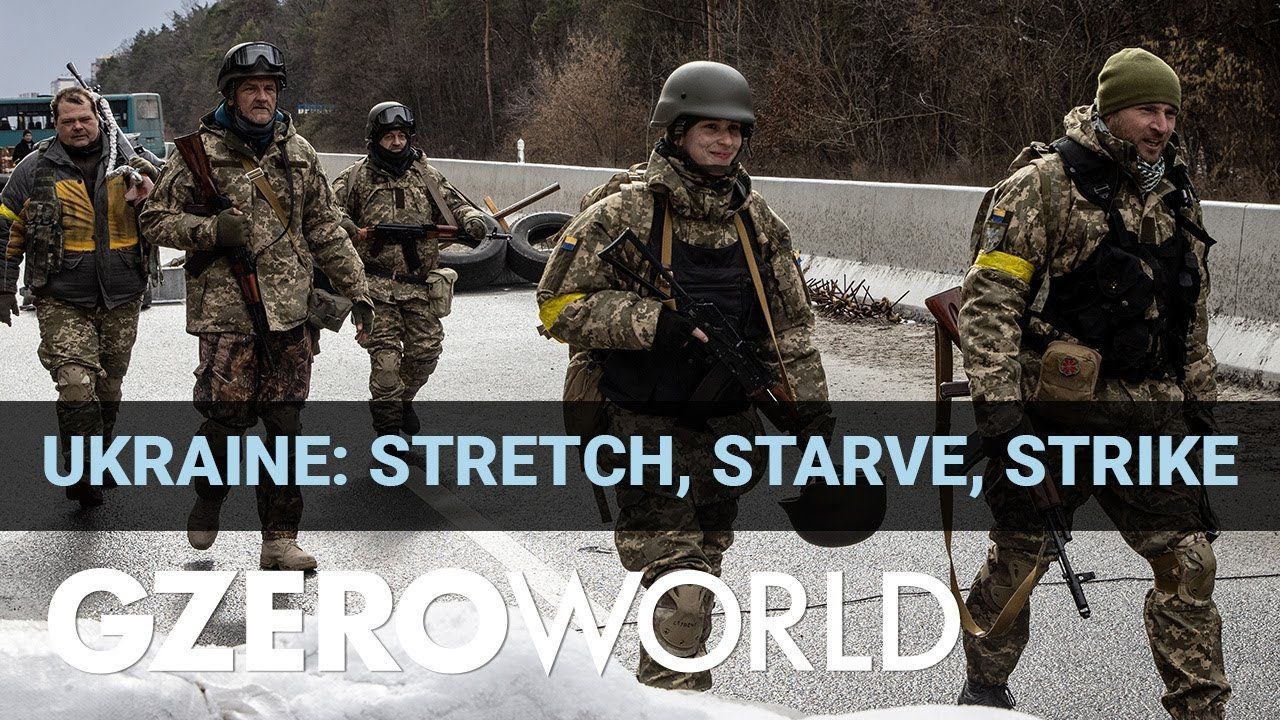GZERO World Clips
Why Ukraine's strategy is "stretch, starve, strike"

Why Ukraine's strategy is "stretch, starve, strike" | GZERO World

What is Ukraine's war plan? So much talk recently about the long-awaited counteroffensive has been negative, at least in the Western press. Is Ukraine's summer push failing? Not quite, says former US Ambassador to Ukraine Marie Yovanovitch.
"The Ukrainians are doing what the British call: 'stretch, starve and strike.' The stretching part of it is what we're seeing now, which is the probing to find the weak spots in Russian defenses. The starving part is hitting bridges, hitting munitions dumps, hitting railroad tracks, all of that, so that supplies can't get through to the Russians. And the striking part is, once they've made a decision as to where the Russians are weakest, then they will bring in the NATO trained and equipped troops to strike the Russians where they are the weakest," she tells Ian Bremmer on GZERO World.
People in support of former South Korean President Yoon Suk Yeol rally near Seoul Central District Court in Seoul on Feb. 19, 2026. The court sentenced him to life imprisonment the same day for leading an insurrection with his short-lived declaration of martial law in December 2024.
65: The age of former South Korean President Yoon Suk Yeol, who was sentenced to life in prison on Thursday after being found guilty of plotting an insurrection when he declared martial law in 2024.
In an era when geopolitics can feel overwhelming and remote, sometimes the best messengers are made of felt and foam.
The Hungarian election is off to the races, and nationalist Prime Minister Viktor Orbán is facing his most serious challenger in 16 years.
Does skepticism rule the day in politics? Public opinion data collected as part of the Munich Security Conference’s annual report found that large shares of respondents in G7 and several BRICS countries believed their governments’ policies would leave future generations worse off.